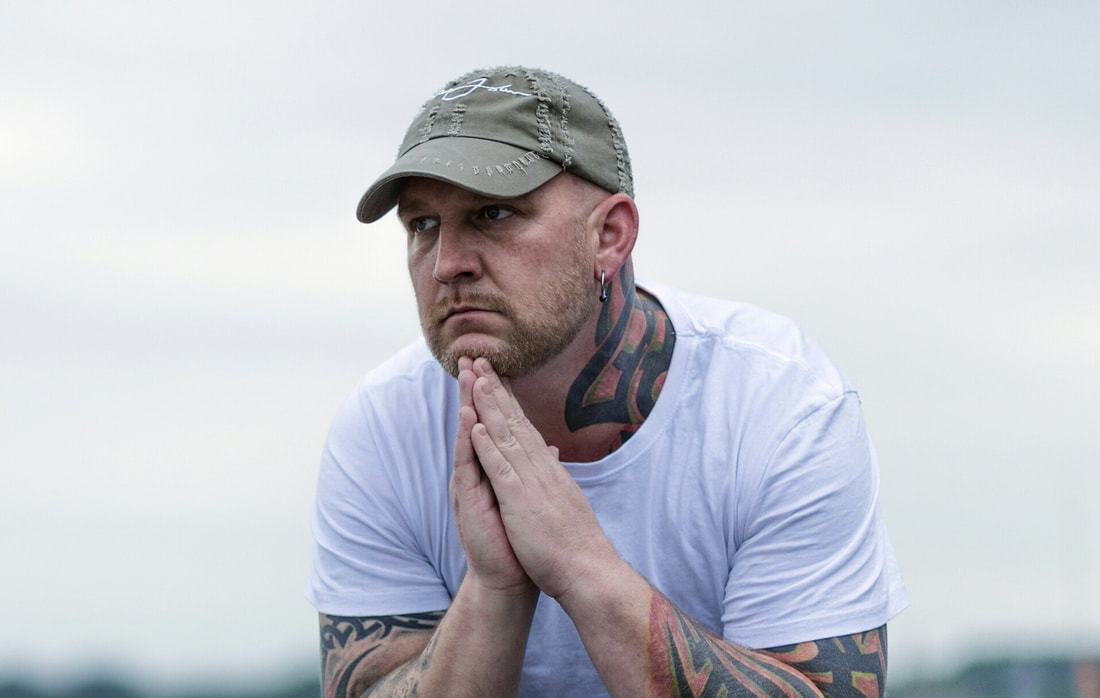|
‘The question is to provoke fresh thought, not to elicit an answer.’ (Stephen Guy) I thought that was a great way of framing it. At an Action Learning Facilitators’ Training event with the NHS this week, we were looking at open coaching-type questions in the exploration phase of an Action Learning round and how they differ from, say, simple questions for clarification. A great question for exploration often stops a presenter in their thinking tracks. We may notice them fall silent; gaze upwards as if on search mode; get stuck for words; speak tentatively or more…slowly. That’s very different to a presenter who answers quickly, fluently or easily – as if telling us something they already know or have already thought through for themselves. In a different Action Learning set recently, one presenter did just that. They were speaking as an expert, not as a learner, so I invited them to count to 10 silently before responding to any question posed – and invited the rest of the group to count to 10 silently too, after the presenter had spoken, before offering a next question. The idea here was to allow the questions to sink deep. Thomas Aquinas, a philosopher and theologian, commented (my paraphrase) that a great question sets us off on a journey of discovery. Brian Watts observed, similarly, that the word question itself has the word quest embedded in it. Sonja Antell invites a presenter simply – but not always easily – to ‘sit with the question’, to reflect in silence and allow the question to do its work. It’s often the place where transformation occurs.
8 Comments
‘Action Learning aims to shake you out of the cage of your current thinking.’ (Pedler & Boutall) Action Learning: a method by which someone receives stretching, coaching-type questions from a small group of peers. The aim is to resolve a pressing challenge, a real-life/work issue that has left the person perplexed or stuck. The idea is to leave with actions, practical steps that will help to move things forward. Yet what gets a person stuck in the first place? If it’s a complex challenge, such as that of navigating the intricacies of diverse human relationships, we may become inadvertently caged by our own assumptions. Gareth Morgan commented that ‘people have a knack for getting trapped in webs of their own creation.’ If we don’t know what assumptions we’re making, everything may seem self-evident to us. This is where Action Learning and coaching really can help. If we can engender a spirit of curiosity within ourselves and invite challenging questions from different others, we may discover a door emerging in our previously-unseen cage, experience the agency to push it wide open and step outside to embrace fresh possibilities. It could just change...everything. ‘Open-ended questions can help clients reflect and generate knowledge of which they may have previously been unaware.’ (Jeremy Sutton) You may have noticed when you order or buy something that, before asking you for payment, the salesperson may ask, ‘Anything else?’ It’s a simple prompt that, when posed, may cause you to remember something, or to make a choice vis a vis something over which you had been wavering. This same approach can be useful in coaching. A coach could ask during the contracting stage: ‘Is there anything else we should be talking about?’ It can sometimes reveal a very significant issue that, until invited, feels unclear to the client, lays out of conscious awareness or has not yet been aired. In action learning, similarly when a facilitator invites a presenter to say something more about the issue they would like to think through, insights that come to mind or actions they plan to take, they can ask, ‘Anything else?’ A presenter, when prompted, will often respond with: ‘Oh yes, and…X’ So, now for a brief moment of reflection. What ideas come to mind for you now as you read this blog? Jot down those that surface immediately… then pause for a moment before moving on to something else in your busy schedule. Ask yourself: ‘Anything else?’ and see what may emerge. ‘Behind every problem, there is a question trying to ask itself. Behind every question, there is an answer trying to reveal itself.’ (Michael Beckwith) Second-guessing. It creates all sorts of risks. ‘What time does Paul’s meeting finish?’ Is that a simple request for information, or is there a question behind the question? ‘I’d like to meet with Paul this afternoon. What time will he be free?’ That’s better. ‘I need you to present an urgent strategy update to the Board.’ Again, is that a simple instruction, or is there an issue that lays behind it? ‘I’d like to demonstrate to the Board next week that our investments are achieving the desired results.’ Better. A problem with a question that fails to reveal the question, the issue, that lays behind the question is that it leaves the other party to fill in the gaps. In doing so, they are likely to draw on their own assumptions – which could be very different to your own – or sometimes their anxieties. ‘Is he complaining that Paul’s meeting is over-running?’ ‘Is she inferring there’s a problem with my work on strategy delivery that I hadn’t been aware of?’ Simply stating our intention can make all the difference. ‘Human existence is always directed to something, or someone, other than itself – be it a meaning to fulfil, or another human being to encounter lovingly.’ (Viktor Frankl) Existential coaching is a powerful and introspective approach that can empower individuals and groups to confront life's fundamental questions, find meaning and embrace personal and social responsibility. Rooted in existential philosophy, this coaching method guides clients through self-exploration, enabling them to confront their fears and uncertainties and make authentic choices aligned with their values. Here are some examples of existential coaching questions:
Existential coaching recognizes that we all face inherent dilemmas, and embracing these challenges can lead to personal and social growth. Using this approach, the coach serves as a supportive ally, helping clients to confront their concerns, explore their inner personal-cultural truths and develop a deeper understanding of themselves. The client can learn to navigate life's complexities with greater clarity and intention, leading to a more meaningful and purposeful life. [Further reading: Monica Hanaway, The Handbook of Existential Coaching Practice (2020); Yannick Jacob, An Introduction to Existential Coaching (2019); Emmy van Deurzen & Monica Hanaway, Existential Perspectives on Coaching (2012)] ‘No matter what happens, we always have a choice.’ (Napz Cherub Pellazo) ‘What are your options?’ is a good question in coaching, except when it isn’t. Many people come for coaching in the first place because they face an issue or a dilemma, and they can’t see a way forward. Sabine Dembkowski and Fiona Eldridge observed this phenomenon in their article, ‘Beyond GROW’ (2023): ‘Clients often experience a stuck state…where they feel trapped as if there are no alternatives or keep circling around the same issue without being able to generate new options.’ Against this backdrop, ‘What are your options?’ can be met with a bemused, ‘I don’t know. That’s why I’m here.’ An inexperienced coach may feel stuck too at this point and perhaps, hoping to find a way through, ask something along the lines of ‘What have you already tried?’ Again, this may elicit little more than feedback on what the client has already done and found to be ineffective (which the client knows already anyway), and bring both parties back to square one. An alternative, and potentially more useful, framing could be something like, ‘Given what you have tried already, what is the crux of the issue for you now?’ This may stimulate fresh insight and, in turn, raise new possibilities into awareness. A different approach can be to pose questions that aim to stretch the boundaries of the client’s current constructs and imagination, for example: ‘What would you do if you had a blank cheque?’ ‘What would you do if you felt no fear?’ ‘What could you do if you were not answerable to anyone?’ Claire Pedrick might invite a stuck client to generate a spectrum of options, from ‘Do nothing’ to whatever they would regard as a ‘Nuclear option’. Ian Gray deploys a fun and radical brainstorming technique, where every third option or idea must be ‘illegal, immoral or absolutely unworkable’. If a client still feels completely stuck, I may invite them to take a large, blank sheet of paper, draw themselves at the centre, then co-create radical options in the form of a mind map. In order to help minimise the risks of instinctive psychological and emotional resistance or push back from the client, I emphasise that the options simply represent possibilities, not what the client may want or consider right to do. Against each option, I then invite the client to respond to two questions: ‘If you were to do this, what would it make possible (or right)?’ and, ‘If you were to be do this, what would you need?' [See also: Out of the building; Worst possible idea] ‘If I had only one hour to save the world, I would spend fifty-five minutes defining the problem, and only five minutes finding the solution.’ (Albert Einstein) Action Learning is a powerful way to explore an issue, formulate a solution and enable personal agency to act and influence change. It can also be used effectively to enable a group with shared interests or concerns to work on and address an issue together. The first step in this latter approach often entails helping a group to formulate its own question or hypothesis at the outset, a bit like when conducting action research, to establish appropriate focus and boundaries. As a facilitator, we can invite the group to reflect on criteria and wider considerations as it performs this initial task. Here are some examples: a. In relation to this issue, who are they key stakeholders in the system? b. Do we have the right people in the room to address this issue? c. Is it feasible to make useful progress on the issue in the time we have available? d. Are there any ethical, intersectional, reflexive or relational issues we should pay attention to in how we do this? Sometimes, I notice that one or more participants may have an intuitive awareness, a feeling or a hunch that something is, say, anxiety-provoking, challenging or stuck in their system, yet they may struggle to articulate it. In that case, I may invite them to, for instance, draw a picture, tell a story or enact a stance to help surface whatever issues lay beneath for them. Then, we continue the process (above) to reach clarity and agreement, as a group, before we move forward. 'I would rather have questions that can't be answered than answers that can't be questioned.' (Richard Feynman) When a person introduces an issue they are facing, we and often they are not always clear at the outset what underlying challenge that issue is posing for them. Rather than asking more questions about the issue itself, however, we could invite the person to reframe the issue as a question. ‘What questions come to mind as you think about this?’ ‘What question is this raising for you now?’ I worked with a strategy consultant who asked great questions; for example ‘What are the questions that, if we were to answer them, would enable us to make strategic decisions?’ In Action Learning sets, we could ask a presenter, for instance, ‘What are the questions you’d find most useful for us to ask?’ And, in high-challenge coaching, ‘What’s the question you’re hoping I won’t ask you?’ Priest-philosopher Thomas Aquinas observed that a good question can set a person off on a quest; a restless and intense journey of searching and discovery. It’s very different to providing a superficial answer that can close thinking down. I sometimes go one step further and ask, ‘What’s the question behind the question?’ It can raise tacit, subconscious and intuitive knowing into view. ‘The smart ones ask when they don’t know. And, sometimes, when they do.’ (Malcolm Forbes) We sometimes discover in new Action Learning sets that participants are unsure about the distinction between questions for clarification and questions for exploration. Participants may wonder, similarly, if and when closed and open questions should be used. This can lead to all kinds of awkward mental and linguistic gymnastics such as, for instance, wanting to ask a simple question for information, yet trying hard to frame it as an open question. I find that one useful way to mark the difference between clarification and exploration questions is to consider, ‘Who is the answer to the question for?’ If I ask a question for clarification, the answer is for me, so that I will know or understand something better. If I ask a question for exploration, it’s offered as a gift that may, I hope, enable another person to gain insight and know or understand something more deeply or broadly for themselves. We also sometimes discover that participants get a bit stuck when thinking about how to transition from questions for exploration to questions for action. They may wonder if, for instance, questions for action are questions for exploration that focus on action. I find a useful way to mark this shift is to think of questions for exploration as divergent (opening out) and questions for action as convergent (drawing together, to enable a close). What we see here is that what makes a good question in Action Learning is determined less by rules about the structure of a question itself (e.g. whether it is an open or a closed question), and more by the focus and orientation of questions at each stage of the process. Participants pose questions in service of the presenter and, at the end of the day, it’s for the presenter to decide which land usefully for them or enable a shift towards a solution. ‘To venture involves risks, but with the potential for great gain.’ (Fook & Askeland) A critical success factor in coaching and Action Learning is a willingness for participants to disclose opportunities or challenges they are facing, in order that they may learn through critical reflection and increase their sense of agency. At times, this may involve surfacing subconscious personal and cultural assumptions to enable self- and peer-examination. In doing so, we may draw on fields of learning and practice including Chris Argyris and Donald Schön’s double and triple-loop learning. The originator of Action Learning, Reg Revans, urged, ‘Swap your difficulties, not your cleverness’. Yet, although this can sound simple in principle, in some contexts it may run against norms and conventions of behaviour. In some cultures, for instance, to disclose a difficulty – especially in a group – could feel politically risky or even shameful. If a person were to share openly in that context, peers from the same cultural group could also feel anxious for that person and desire to protect them. This safeguarding instinct may be amplified in health and social sector contexts where participants may be used to working with vulnerable people and groups and-or have lived experience of trauma. If their professional training has evolved from or been influenced by counselling or therapy, they may find posing high-challenge questions uncomfortable or threatening; especially if they associate asking searching questions with, for instance, investigations or judgements re. access to services. In some cultures, to disclose personal rather than strictly situational challenges can be regarded as inappropriate and unprofessional. In some cultures, rationality and objectivity may be regarded as having higher value than intuition, subjectivity or emotion. Participants may find themselves preoccupied with problem analysis and formulating definitive answers and solutions, rather than enabling a person to sit with ambiguity, uncertainty and tension. A vital role for a coach or facilitator is to build trust, curiosity and critical reflexivity; drawing on any filters, biases and experiences that emerge as tools for transformation. |
Nick WrightI'm a psychological coach, trainer and OD consultant. Curious to discover how can I help you? Get in touch! Like what you read? Simply enter your email address below to receive regular blog updates!
|













 RSS Feed
RSS Feed